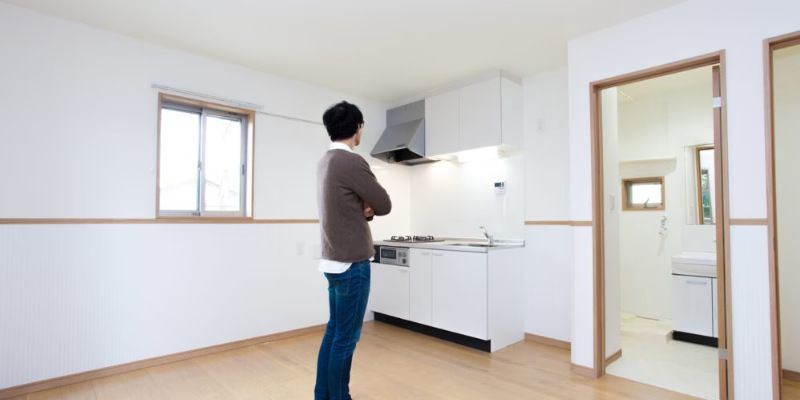Fixed-Term Rental vs. Ordinary Lease Contract in Japan is a crucial topic for anyone planning to live or invest in Japanese real estate. Understanding these two types of agreements will help you avoid misunderstandings, secure better terms, and comply with Japanese tenancy laws. Whether you’re an expat moving to Tokyo or a local considering new apartment lease options in Japan, this renting in Japan guide will walk you through contract details, renewal rules, costs, and the rights and responsibilities of both tenants and landlords.
Introduction – Why Lease Type Matters in Japan
When you begin searching for an apartment in Japan, whether in bustling Tokyo, historic Kyoto, or coastal Fukuoka,you’ll quickly encounter two main contract types: the ordinary lease contract (普通借家契約, futsū shakuyakeiyaku) and the fixed-term rental contract (定期借家契約, teiki shakuyakeiyaku).
While both are legally valid under Japanese tenancy laws, they operate under very different rules. For long-term residents, an ordinary lease often means stability, but it can also mean paying renewal fees every few years. For those on a temporary assignment or study program, a fixed-term lease might offer better rates but requires you to move when the contract ends.
Many new renters, especially foreigners, are surprised by how strict renewal and termination conditions can be. Landlords in Japan often prefer fixed-term leases for flexibility, while tenants tend to favor ordinary leases for security. This renting in Japan guide will help you understand not just the definitions, but also the practical implications of each option

Overview of Japanese Tenancy Laws
Japan’s rental system is governed by the Act on Land and Building Leases (借地借家法, Shakuchi Shakuyahō), which outlines how rental agreements work, how disputes are resolved, and what rights and obligations each party has.
Key points in the law relevant to renters:
Written contracts are standard – While verbal agreements are technically possible, nearly all landlords require written contracts, and clauses must be explained before signing.
Tenant protection is strong for ordinary leases – Landlords cannot simply decide not to renew without a “justifiable reason,” such as demolishing the building or using the property themselves.
Renewal fees – These are not mandated by law but are an entrenched custom in many regions.
Deposit and key money – Customary payments are not fixed by law, but the amounts must be clearly stated in the lease.
Fixed-term leases have fewer protections – Once the term ends, tenants have no automatic right to stay.
Knowing these basics before comparing the two contract types is critical for avoiding costly mistakes.

Understanding the Ordinary Lease in Japan
The ordinary lease contract is Japan’s most common rental agreement, designed for ongoing occupancy with automatic renewals unless one party ends it.
Main features:
- Typical duration: Usually 2 years, but 3- or 4-year terms exist.
- Renewal rights: The tenant has the right to renew unless the landlord has a legally valid reason to refuse.
- Renewal fees: Often equal to one or two months’ rent. In Tokyo, for example, a renewal fee is almost always expected.
- Termination: Tenants can usually end the lease early with one or two months’ notice, depending on the contract.
Example scenario:
Say you rent an apartment in Shibuya for ¥150,000 per month under an ordinary lease. AIf you decide to remain in the property once the initial two-year term ends, the contract typically rolls over without interruption, provided the landlord has no legally recognized grounds to end it. In many cases, tenants are required to pay a renewal charge, which can range from around ¥150,000 to ¥300,000, depending on the property and agreement.
Advantages for tenants:
- Reliable Housing and Lasting Peace of Mind
- Ability to renew without renegotiating rent (though rent increases are possible under certain conditions)
- Easier to plan long-term housing costs
Drawbacks:
- Renewal fees can be expensive
- Less appealing if you plan to stay for less than the initial term

Understanding the Fixed-Term Rental in Japan
A fixed-term rental contract is valid for a specific period only, after which it automatically ends.
Main features:
- Duration: Can be as short as 6 months or as long as several years.
- No renewal rights: At the end of the contract, you must leave unless a new contract is signed.
- Advance notice: The landlord must notify you between 1 and 6 months before the end date that the lease will not continue.
- Rent levels: Sometimes lower than comparable ordinary leases because landlords are not committing long-term.
Example scenario:
You take a 1-year fixed-term lease in Osaka for ¥120,000 per month. The landlord offers a small discount compared to similar properties. After 12 months, even if you want to stay, you must leave unless both parties agree to a new contract.
Advantages for tenants:
- Often cheaper rent
- Good for temporary assignments, internships, or study abroad programs
- Predictable end date
Drawbacks:
- No long-term housing security
- Moving costs if your plans change
- Negotiation for a new lease may not succeed

How Fixed-Term and Ordinary Leases Differ
When renting in Japan, it’s important to know the difference between ordinary leases and fixed-term rental contracts. Each has distinct rules on duration, renewal, and tenant protections, affecting cost and flexibility.
Feature | Ordinary Lease Contract | Fixed-Term Rental Contract |
Renewal | Renewal is automatic unless notice is issued | None, must vacate at term end |
Tenant Protection | Strong | Limited |
Typical Duration | 2 years | Flexible (months–years) |
Renewal Fee | Often required | Not applicable |
Best For | Long-term residents | Short-term or specific-term stays |
Rent Level | Standard market rate | Sometimes lower |
How to Choose the Right Lease – Renting in Japan Guide
Choosing between a fixed-term rental and an ordinary lease contract in Japan isn’t just about signing the cheapest deal, it’s about aligning the contract terms with your timeline, budget, and lifestyle. The right decision can save you from unexpected costs, stressful moves, or being locked into an arrangement that no longer suits your needs.
To make an informed choice, consider asking yourself these questions
- How long will I stay in Japan?
If your stay will be more than two years, an ordinary lease is often the better choice, as it offers stability, renewal rights, and fewer surprises. On the other hand, if you’ll be here for less than a year, a fixed-term lease may save you money and better match your short-term living plan. - Am I willing to move if my plans change?
Life happens, job transfers, family changes, or unexpected opportunities may require a move. If you prefer not to face the hassle of relocating mid-stay, an ordinary lease provides more security. - Is saving on rent more important than stability?
For some tenants, especially students, interns, or short-term workers, cutting costs takes priority over long-term stability. Fixed-term contracts can offer lower rent or better locations at a reduced price, making them attractive for budget-conscious renters. - What’s the location like?
In high-demand neighborhoods such as Shinjuku or Minato Ward, fixed-term contracts are increasingly common. Landlords in these areas often prefer flexible tenant turnover to keep up with market rates and adapt to changing demand.
Landlord Perspective
Understanding the landlord’s point of view can also help you make a smarter decision.
- Ordinary lease contracts attract long-term tenants and minimize vacancy risk. Landlords value stability because it reduces administrative work and ensures consistent income.
- Fixed-term lease contracts give landlords more flexibility. They can choose not to renew a contract if they want to sell the property, carry out renovations, or adjust the rent to match market trends without going through complicated eviction procedures.
For example, in rapidly developing neighborhoods like Kachidoki in Tokyo, many landlords choose fixed-term leases so they can revisit their rental strategy every year. This way, they can quickly adapt to market changes, attract higher-paying tenants, or modernize the property to boost its value.
Essential Contract Points to Review Before Signing
Regardless of lease type, look closely at:
- Deposit (敷金, shikikin) – Refundable minus cleaning/repair costs.
- Reikin (Key Money) – A customary, non-refundable fee paid to the landlord as a gesture of gratitude.
- Early termination penalties – Especially strict in fixed-term leases.
- Maintenance responsibilities – Clarify what is “tenant’s cost” vs. “landlord’s cost.”
- Rent increase clauses – Some contracts allow adjustments during renewal.
Special Cases – Corporate and Furnished Rentals
Not all rental agreements in Japan fit neatly into the standard fixed-term vs. ordinary lease categories. Certain housing arrangements cater to specific groups, such as corporate employees, international students, or short-term professionals, and these often follow their own patterns in terms of contract type, furnishings, and rental conditions. If you fall into one of these categories, it’s important to understand how the rules may differ.
- Corporate Leases
Large companies in Japan sometimes rent apartments on behalf of their employees, especially for overseas hires or staff relocating from another city. These corporate leases are often structured as fixed-term contracts to match the length of an employee’s work assignment. This setup benefits both sides: the company avoids paying for an empty apartment if the employee leaves early, and the landlord gains predictable turnover for re-leasing. - Furnished Apartments
While most apartments in Japan are rented unfurnished, there’s a growing market for furnished properties aimed at expats, exchange students, and short-term residents. These rentals almost always use fixed-term agreements because they’re designed for temporary stays. They can save tenants the hassle and cost of buying furniture, but expect higher monthly rent to cover the convenience. - Serviced Apartments
A step up from furnished rentals, serviced apartments come with hotel-like amenities such as cleaning services, concierge assistance, and flexible check-in/out policies. They operate under different licensing rules, which allows for shorter minimum stays and greater flexibility than standard residential leases. The trade-off? Rates are usually much higher than either fixed-term or ordinary leases, making them more suitable for business travelers or those with generous corporate housing allowances.
Tips for Foreign Renters
Renting in Japan can feel very different from renting in other countries, especially with unique fees and strict tenancy laws. Essential Guidance for a Stress-Free Move:
- Bring a guarantor – Most landlords require a Japanese guarantor or guarantor company.
- Use bilingual agents – They can explain key legal terms in English.
- Negotiate terms – Some landlords reduce or waive key money, especially for fixed-term rentals.
- Check neighborhood rules – Garbage disposal, noise levels, and bicycle parking rules vary by ward.
- Understand cultural expectations – For example, late-night noise can lead to disputes with neighbors.
The Future of Apartment Lease Options in Japan
In recent years, Japanese landlords have increasingly offered fixed-term contracts to retain flexibility in a fluctuating real estate market. This trend is especially visible in central Tokyo and Osaka, where high demand allows property owners to select tenants on shorter terms without sacrificing occupancy rates.
For renters, this means more diverse apartment lease options in Japan, but also a greater need to understand the fine print before signing.
Conclusion
Whether you choose a fixed-term rental or an ordinary lease contract in Japan, understanding the distinctions is essential for a smooth renting experience. This renting in Japan guide has highlighted the impact of Japanese tenancy laws on your decision and explored how various apartment lease options in Japan suit different lifestyles.
At Arealty, we specialize in helping both locals and expatriates navigate the Japanese rental market, offering bilingual support, curated property listings, and expert guidance on lease contracts. From securing your ideal home to explaining renewal clauses in detail, we make renting in Japan simpler, clearer, and stress-free.






Leave a Reply